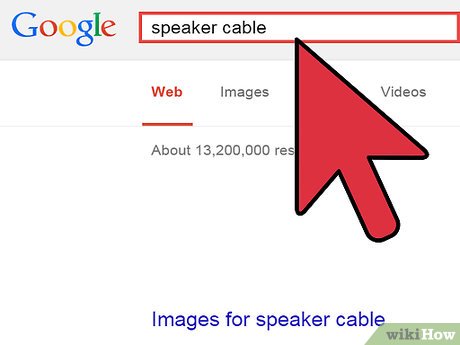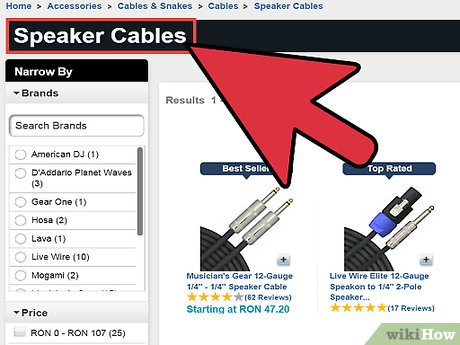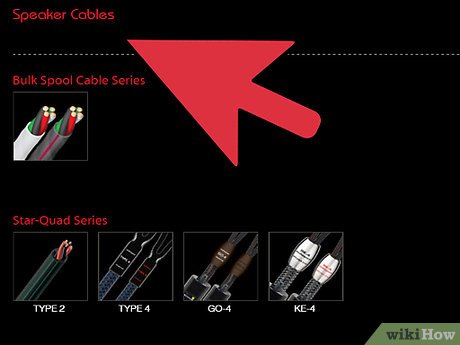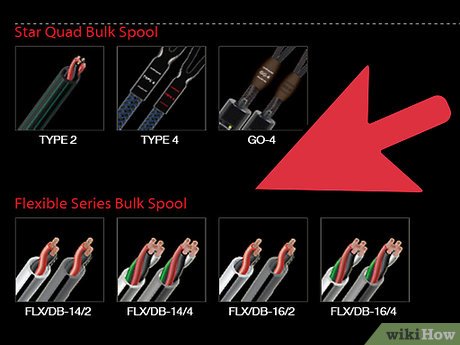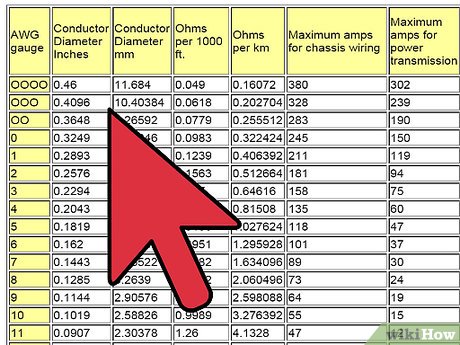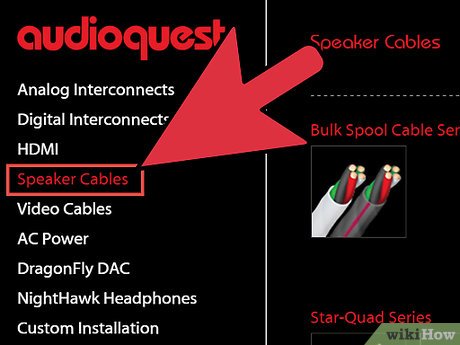How to Buy Speaker Cables
Method 1 of 2:
Run a Test Before You Buy Speaker Cables
-
 Upgrade to the more expensive wire if quality is an issue.
Upgrade to the more expensive wire if quality is an issue.- If you have a basic home theater system and your speakers are fairly close to your receiver, you will be fine with standard speaker cables. However, better wiring has higher quality metals that actually increase conductivity, which can lead to a higher quality of sound.
-
 Test a variety of speaker cables in different price ranges to see which you like best.
Test a variety of speaker cables in different price ranges to see which you like best.- If you have high quality speakers, you'll likely hear a noticeable difference between high end and low-end speaker cables. However, if you don't hear enough of a difference to warrant the price difference, simply return the higher priced cables.
- Make sure the store where you purchase your speaker cables has a good return policy if you plan to run a test at home.
-
 Listen to your speakers for an hour when attached to each cable; that way you can hear a variety of audio samples.
Listen to your speakers for an hour when attached to each cable; that way you can hear a variety of audio samples.
Method 2 of 2:
Choose the Appropriate Speaker Wire
-
 Run a string from your amplifier to your speaker locations to determine how much speaker wire you need.
Run a string from your amplifier to your speaker locations to determine how much speaker wire you need.- Allow a little extra slack in your speaker wire in case you measure wrong or if you ever need to move your speakers in the future.
- If you plan to run your speaker wire behind your walls or ceiling, safety code requires you to use CL2 or CL3 UL-rated speaker wire. The Underwriters Laboratory (UL) examines the heat generated from the wire, how quickly the speaker wire might catch fire when exposed to a flame and how prone the wire is to damage if it encounters external stresses to set this rating.
- If you plan to run speaker wire outdoors, you'll need speaker wire that's rated for direct burial.
-
 Consider the gauge of speaker wire required for the job. The AWG (American Wire Gauge) number identifies the gauge, or the thickness, of a speaker wire.
Consider the gauge of speaker wire required for the job. The AWG (American Wire Gauge) number identifies the gauge, or the thickness, of a speaker wire.- Use 16 gauge if you need fewer than 80 feet (24 meters) of speaker wire.
- Use 14 gauge if you need 80 feet to 200 feet (61 meters) of speaker wire.
- Use 12 gauge if you need more than 200 feet of speaker wire.
-
 Identify the type of connector required for your speakers.
Identify the type of connector required for your speakers.- You might connect with bare wires, pin connectors, banana plugs, spade connectors or dual banana plugs.
- Some high-end brands of speakers, like Bose, do not have standard connectors for speaker wire or audio cables. Contact the company to find speaker wire or audio cabling that's compatible with those speakers.
Share by
Kareem Winters
Update 04 March 2020
